There are a number of sources of energy that play an important role in generating power. The power here actually refers to the electrical energy that the sources are used to produce. It is because whether it is the movement of a vehicle or the burning of light, it all runs down to a series of electrical reactions. The sources of energy provide this electrical power that is required. Fossil fuels are used to produce this energy.
Post your Requirement
As you know fossil fuels are non-renewable sources. That is, you will not have them when you have used them up for producing power. Coal, oil, etc are fine examples of non-renewable sources. They are the fuel that is formed as a result of the anaerobic decomposition of decayed plants and animals that have settled and have been compressed on the earth’s surface for millions of years. While it is easy to obtain power using fossil fuels easily and we have been doing it for quite some time now, there looms the threat of these fossil fuels being depleted or not being enough to meet our requirements in a short time from now. Similarly, the use of fossil fuels also leads to the emission of carbon compounds which seems to speed up global warming and is a threat to the environment. This has led to the need to find alternate sources of energy and renewable energy sources in that so that there is no question of it getting depleted.
What does the renewable source of energy mean?
Renewable energy refers to power generated from wind, sun, etc that would not get depleted during your lifetime and is replenished naturally all the time. Research and studies are being done regularly to find new renewable energy sources but only a few sources seem to have been made it to the renewable energy sources list over the years.
Related Post: Different Types of Solar Panels and Their Efficiency
Different types of renewable energy sources
-
- Solar Energy
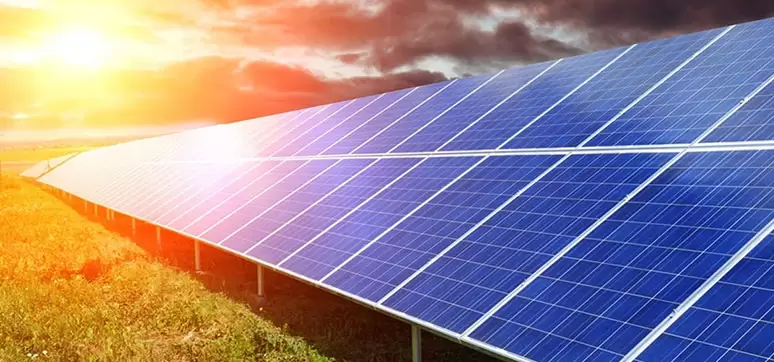 This refers to the power that is harvested from the sun’s rays. The power is harnessed through the collector panels that are usually set up on the roof of the building to concentrate the heat in the suns rays on to the panel to excite the electrons in the Photovoltaic cells in the panels to produce usable power that can help in the functioning of a number of appliances as small as light or fan to a large motor enabled machinery in the factories depending on the size and efficiency of the solar panels that are set up. Since you will be able to get enough light and heat from the sun to use it during the day. However, it cannot be used to generate power at the night. To make up for this disadvantage you could make use of a battery to store the energy harnessed during the day. However since the amount of sunlight as well as the length of time required to harness direct power from them without having to store it, is available only in certain geographical regions of the world, there is a need to consider the other types of renewable energy sources.
This refers to the power that is harvested from the sun’s rays. The power is harnessed through the collector panels that are usually set up on the roof of the building to concentrate the heat in the suns rays on to the panel to excite the electrons in the Photovoltaic cells in the panels to produce usable power that can help in the functioning of a number of appliances as small as light or fan to a large motor enabled machinery in the factories depending on the size and efficiency of the solar panels that are set up. Since you will be able to get enough light and heat from the sun to use it during the day. However, it cannot be used to generate power at the night. To make up for this disadvantage you could make use of a battery to store the energy harnessed during the day. However since the amount of sunlight as well as the length of time required to harness direct power from them without having to store it, is available only in certain geographical regions of the world, there is a need to consider the other types of renewable energy sources.
- Solar Energy
-
- Geothermal energy
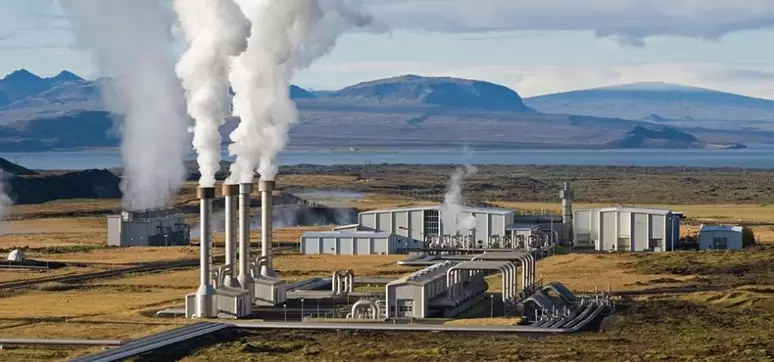 This refers to the energy that is developed from beneath the earth. This energy is harnessed by setting up a geothermal power plant. The power plant taps the steam or hot water reservoirs that are found under the earth’s surface. The heat that is generated converts the water under the earth’s surface to steam. The steam is said to operate or move the turbines. The power is then generated from the turbines. However, this source of energy can be harnessed only in places where hot water reservoirs are believed to be present. You have a number of geothermal projects in the Western part of the United States owing to the number of hot water reservoirs that are quite common there. Geysers in California in the United States is called geothermal field considering the group of geothermal plants located there.
This refers to the energy that is developed from beneath the earth. This energy is harnessed by setting up a geothermal power plant. The power plant taps the steam or hot water reservoirs that are found under the earth’s surface. The heat that is generated converts the water under the earth’s surface to steam. The steam is said to operate or move the turbines. The power is then generated from the turbines. However, this source of energy can be harnessed only in places where hot water reservoirs are believed to be present. You have a number of geothermal projects in the Western part of the United States owing to the number of hot water reservoirs that are quite common there. Geysers in California in the United States is called geothermal field considering the group of geothermal plants located there. - Biomass Energy
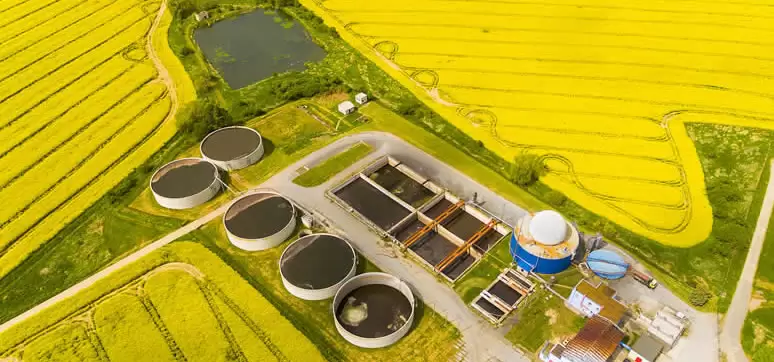 You would be aware of the process of photosynthesis. In the process chlorophyll from the plant actually captures the energy from the sun. It then converts it into carbohydrates in the presence of carbon dioxide in the air and water from the soil. Carbon-di-oxide and water are released into the atmosphere when these plants are burned. Biomass refers to the heaps of crops, plants, trees, animal wastes, yard clippings, etc. the energy produced by the biomass is used for cooking and minor industrial processes. But, this does emit carbon which cannot be considered as an environmentally friendly option.
You would be aware of the process of photosynthesis. In the process chlorophyll from the plant actually captures the energy from the sun. It then converts it into carbohydrates in the presence of carbon dioxide in the air and water from the soil. Carbon-di-oxide and water are released into the atmosphere when these plants are burned. Biomass refers to the heaps of crops, plants, trees, animal wastes, yard clippings, etc. the energy produced by the biomass is used for cooking and minor industrial processes. But, this does emit carbon which cannot be considered as an environmentally friendly option.
- Geothermal energy
Suggested Post: Interesting Facts About Solar Energy
-
- Wind Energy
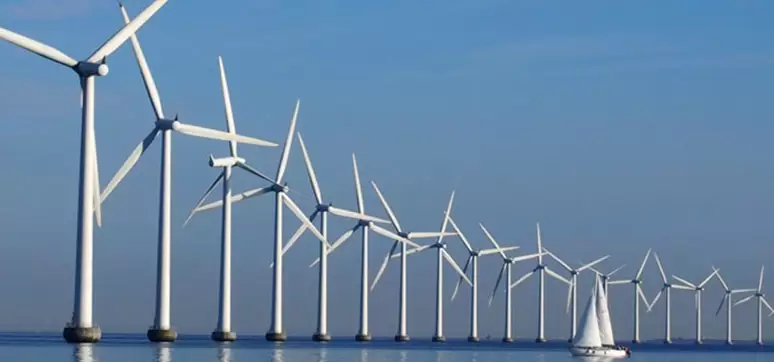 This refers to the process of harvesting energy from the air. It is done by setting up wind farms in regions where the land wind is supposed to be blowing at a rate that is good enough to get the turbines moving most of the time. The turbine then fuels the generator that produces electric power. Though the generation of renewable energy from winds seem to be ideal, potential impacts on the environment in the form of noise produced by the blades of the turbine, visual impacts as well as the death of birds and bats that fly close to the rotors are being considered with concern by the environmentalists.
This refers to the process of harvesting energy from the air. It is done by setting up wind farms in regions where the land wind is supposed to be blowing at a rate that is good enough to get the turbines moving most of the time. The turbine then fuels the generator that produces electric power. Though the generation of renewable energy from winds seem to be ideal, potential impacts on the environment in the form of noise produced by the blades of the turbine, visual impacts as well as the death of birds and bats that fly close to the rotors are being considered with concern by the environmentalists.- Tidal Energy and wave energy
 This refers to the process of being able to convert the kinetic energy in the waves that come in and go out into electrical energy. Though, you can produce electricity even from tides that come in at low speed the greatest drawbacks that prevent the use of this system is the huge investment that is required as well as the limited availability of sites. You can harness tidal energy only in coastal areas. Though the process, as well as the site of harnessing tidal and wave energy, are the same, there is a basic difference between the two. The Tidal energy uses the gravitational pull of the moon and the Earth to generate energy whereas the wave uses the kinetic energy of the waves caused by the winds that blow across the surface of the ocean to generate energy.
This refers to the process of being able to convert the kinetic energy in the waves that come in and go out into electrical energy. Though, you can produce electricity even from tides that come in at low speed the greatest drawbacks that prevent the use of this system is the huge investment that is required as well as the limited availability of sites. You can harness tidal energy only in coastal areas. Though the process, as well as the site of harnessing tidal and wave energy, are the same, there is a basic difference between the two. The Tidal energy uses the gravitational pull of the moon and the Earth to generate energy whereas the wave uses the kinetic energy of the waves caused by the winds that blow across the surface of the ocean to generate energy. - Hydroelectric power
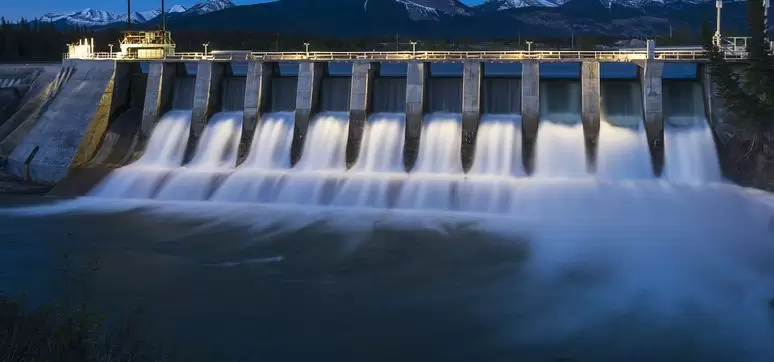 Most of the power requirements of towns and cities are being met even today by the hydroelectric plants that generate electricity using water. You can see hydroelectric power plants located near the dams. The power of water is passed on to the generators which are then converted into electrical power and supplied through electrical lines. This is how power is being generated and supplied in the past century to this day. But, the major problem that necessitates finding an alternative source of energy is that large investments would be required to restore dams that have aged and the reduction in the amount of drinking water reserves that are available may make it essential to use the water required for generating power to be used for drinking purposes.
Most of the power requirements of towns and cities are being met even today by the hydroelectric plants that generate electricity using water. You can see hydroelectric power plants located near the dams. The power of water is passed on to the generators which are then converted into electrical power and supplied through electrical lines. This is how power is being generated and supplied in the past century to this day. But, the major problem that necessitates finding an alternative source of energy is that large investments would be required to restore dams that have aged and the reduction in the amount of drinking water reserves that are available may make it essential to use the water required for generating power to be used for drinking purposes.
Related Post: Top 12 Solar Energy Products & Technologies in India
-
- Hydrogen Energy
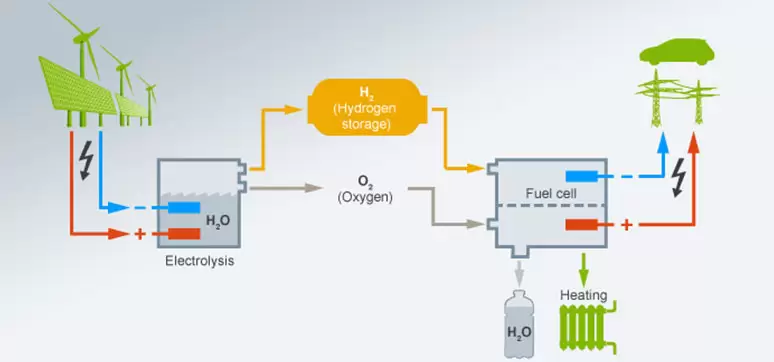 You know that water contains hydrogen. But, what you might not be aware of is that when hydrogen is separated from oxygen, It can be used as a fuel. It is no ordinary fuel. It is good enough to power even rockets apart from others such as ships, vehicles, industries, and residences. However, it is one of the types of renewable energy sources that are produced on demand and it does not emit any toxic substances that spoil the atmosphere.
You know that water contains hydrogen. But, what you might not be aware of is that when hydrogen is separated from oxygen, It can be used as a fuel. It is no ordinary fuel. It is good enough to power even rockets apart from others such as ships, vehicles, industries, and residences. However, it is one of the types of renewable energy sources that are produced on demand and it does not emit any toxic substances that spoil the atmosphere. - Nuclear Power
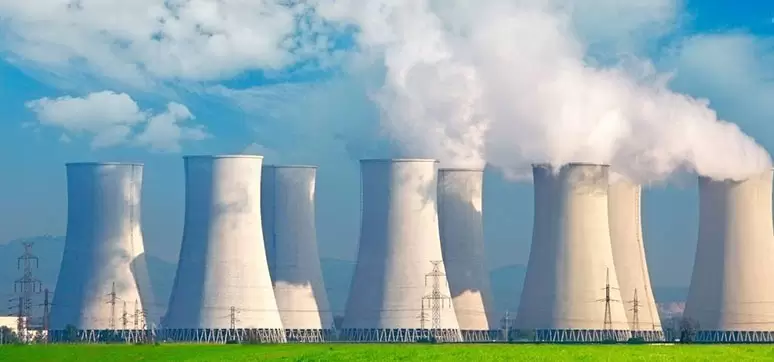 Nuclear power no doubt creates energy and large amounts in that. But, since the energy is created through nuclear reacy=ions that are believed to produce radiations and emissions that are considered to be harmful, Whether nuclear power can be a renewable energy source that you should depend on seems to be a debatable topic. However, despite the debate, you do have nuclear generators in most countries and scientists are working hard to resolve issues in waste disposal and ensure safety standards.
Nuclear power no doubt creates energy and large amounts in that. But, since the energy is created through nuclear reacy=ions that are believed to produce radiations and emissions that are considered to be harmful, Whether nuclear power can be a renewable energy source that you should depend on seems to be a debatable topic. However, despite the debate, you do have nuclear generators in most countries and scientists are working hard to resolve issues in waste disposal and ensure safety standards.
- Hydrogen Energy
Also Check: How you can save the world from global warming
The huge capital investments required to harness the power, low efficiency, and generation of power that is not quite as large as the demand are cited as the disadvantages of renewable sources of energy. But, the possibility to prevent inflation in global energy prices, low or nil carbon and sulfur emissions when compared to the fossil fuels, easy maintenance of the infrastructure set up to harness the power, as well as the empowerment of the people who live in the countryside can be considered as the benefits of using renewable source of energy. Since most of the drawbacks that you might notice are also fixable, renewable form of energy has to be harnessed in order to have a better and prosperous future without depleting any sources including fossil fuels as far as possible.






















Post A Comment